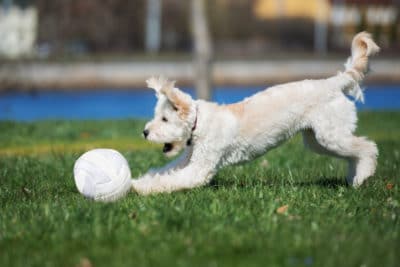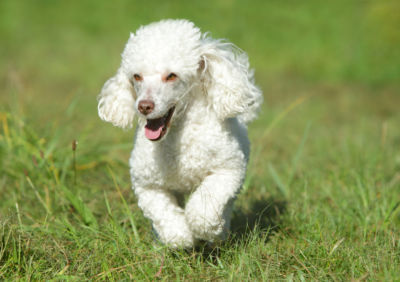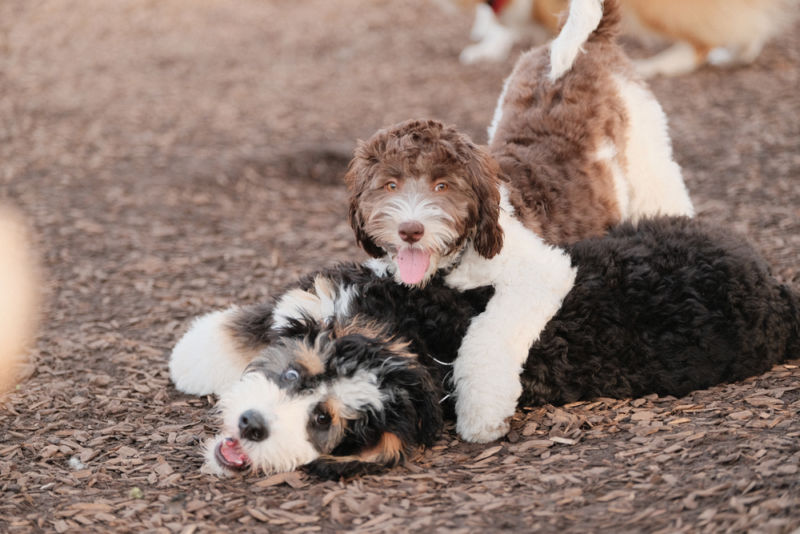 Socializing your puppy is essential, just like making sure they get their vaccinations and learn to potty train. It is one of the most important aspects of puppy training. When you do it on time and while they’re at their most adorable, it’s easier to be patient as they learn. Find out how to socialize your puppy with this guide.
Socializing your puppy is essential, just like making sure they get their vaccinations and learn to potty train. It is one of the most important aspects of puppy training. When you do it on time and while they’re at their most adorable, it’s easier to be patient as they learn. Find out how to socialize your puppy with this guide.
What Is Puppy Socialization?
Early socialization is vital for puppy owners and their fur babies. It’s all about making a positive association with the outside world and getting them used to unfamiliar people and various sounds. During puppyhood is the best time to get a pooch used to public places and a wide variety of people. If they don’t get enough variety in their lives, they might grow up to be fearful or aggressive.
Training older dogs often requires a behaviorist or dog trainer because it’s more challenging. That’s why we recommend getting puppy training right while they’re young — including socializing them, exposing them to positive experiences, and getting them used to a range of new situations. And remember, the secret to a happy, friendly dog is a calm and contented household.
When should you start socializing your puppy?
 Properly trained dogs should have the opportunity to develop into happy and caring companion animals and socialization classes help if your puppy is not accustomed to any type of sight, sound, or smell. Socialization is beneficial for dogs at all ages but particularly for puppies. That’s because dogs that don’t experience many positive experiences during socializing periods tend to be anxious throughout their entire lives.
Properly trained dogs should have the opportunity to develop into happy and caring companion animals and socialization classes help if your puppy is not accustomed to any type of sight, sound, or smell. Socialization is beneficial for dogs at all ages but particularly for puppies. That’s because dogs that don’t experience many positive experiences during socializing periods tend to be anxious throughout their entire lives.
Puppy socialization should begin as soon as you bring your puppy home, and it will continue throughout the puppy’s life. Puppies are most receptive to new things between the ages of six weeks and 16 weeks (four months). Therefore, puppy socialization is especially important during this period. However, even older dogs can benefit from puppy socialization.
8 Tips on How to Socialize Your Puppy
The key to a loving and friendly older dog is getting the socialization period right. If your pup seems agitated or unresponsive over an extended period of time, don’t think twice about training classes at puppy kindergarten. A trained individual can help you work through any issues for the best future outcomes.
1. Don’t Hesitate With New Puppy Socialization
The most effective time for ironing out future behavior problems is the first 10 to 16 weeks of age. However, as a dog owner, you’ll need to be consistent with training for up to two years to give your pooch the best chance of growing up anxiety- and aggression-free.
2. Daily Walks and Trips to the Dog Park
It’s crucial you take your pup out at least once a day without fail. This lets them interact with and learn from the outside world and other animals from the safety of your side. Leash training is a great way to get started with your pup, acting as both a bonding and a practical activity for you both.

3. Variety Is Key
Don’t just take your furry pal for walks — take it to playdates, puppy classes, and other controlled environments where it can meet new dogs. Also, be sure to introduce it to a wide variety of people. If it gets used to just men or women, or just people who look a certain way, it might react badly to individuals who look different in public places.
4. Go on Car Rides
Dogs generally love going on car rides, but it’s a good idea to get puppies used to riding in the car early on. They can travel in a small crate, sit on someone’s lap, or be strapped in with a dog car seat belt.
5. Gradually Get Them Used to Different Sounds
One by one, and while the puppy isn’t in an excitable or nervous mood, introduce them to potentially frightening loud noises. Here are some examples:
- Hairdryers
- Vacuum cleaners
- Skateboards
- Busy roads
- Use sound recordings for things like thunder, fireworks, car horns, etc.

Puppy Socialization Guidelines
- Never force your puppy to interact with other dogs or people. Let him approach the person or animal at his own pace.
- Never let your puppy play aggressively with another dog, even if it looks like they’re having fun. Aggression is not appropriate puppy behavior and should be discouraged immediately.
- Avoid puppy socialization situations that may frighten your puppy, such as busy streets or loud places.
- Be patient and positive when socializing your puppy. Remember that it will take time for him to get used to new things. Praise your puppy whenever he behaves appropriately in a new situation and give him dog food or treats along with it for reinforcement.
Check out Our Gorgeous Range of Puppies
With patience and persistence, you can help your puppy become a well socialized dog. Puppy socialization is the crucial first step in raising a well-behaved adult dog. For more information on puppy socialization and training classes, call us at 866-985-4881. And If you haven’t got your very own pooch to take out on puppy play dates, take a look at our adorable untrained and trained Goldendoodles on the Pride and Prejudoodles website today.
